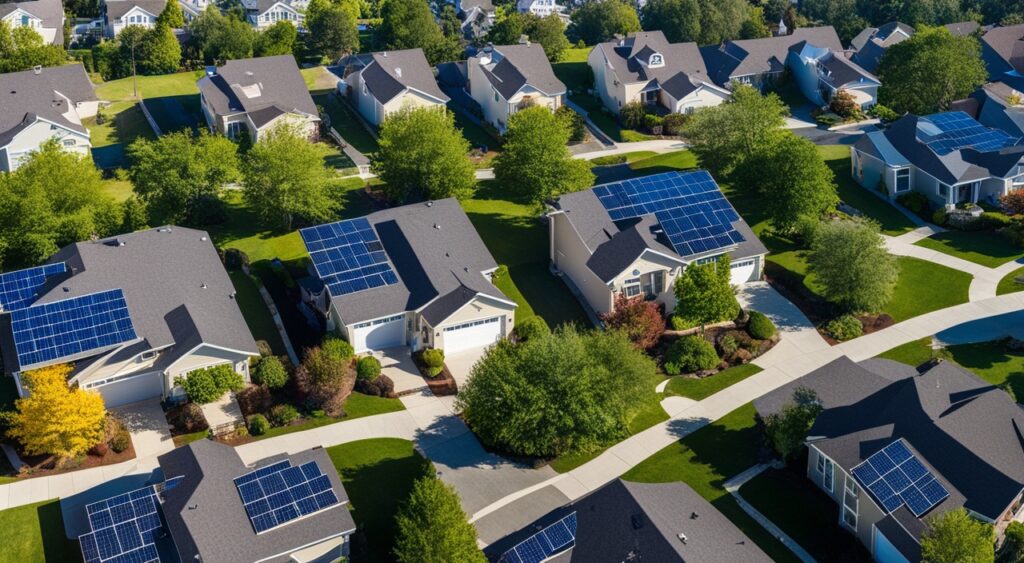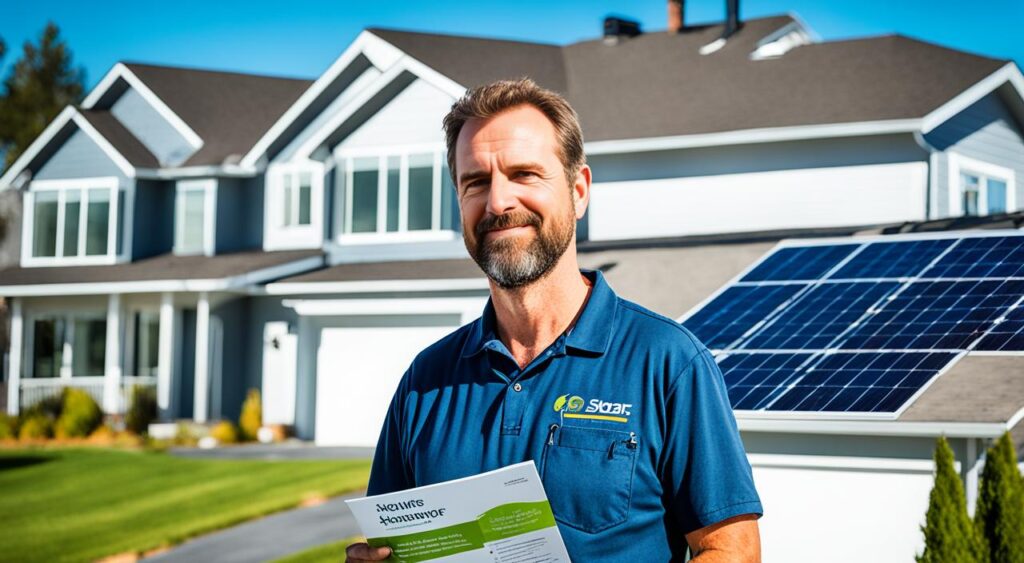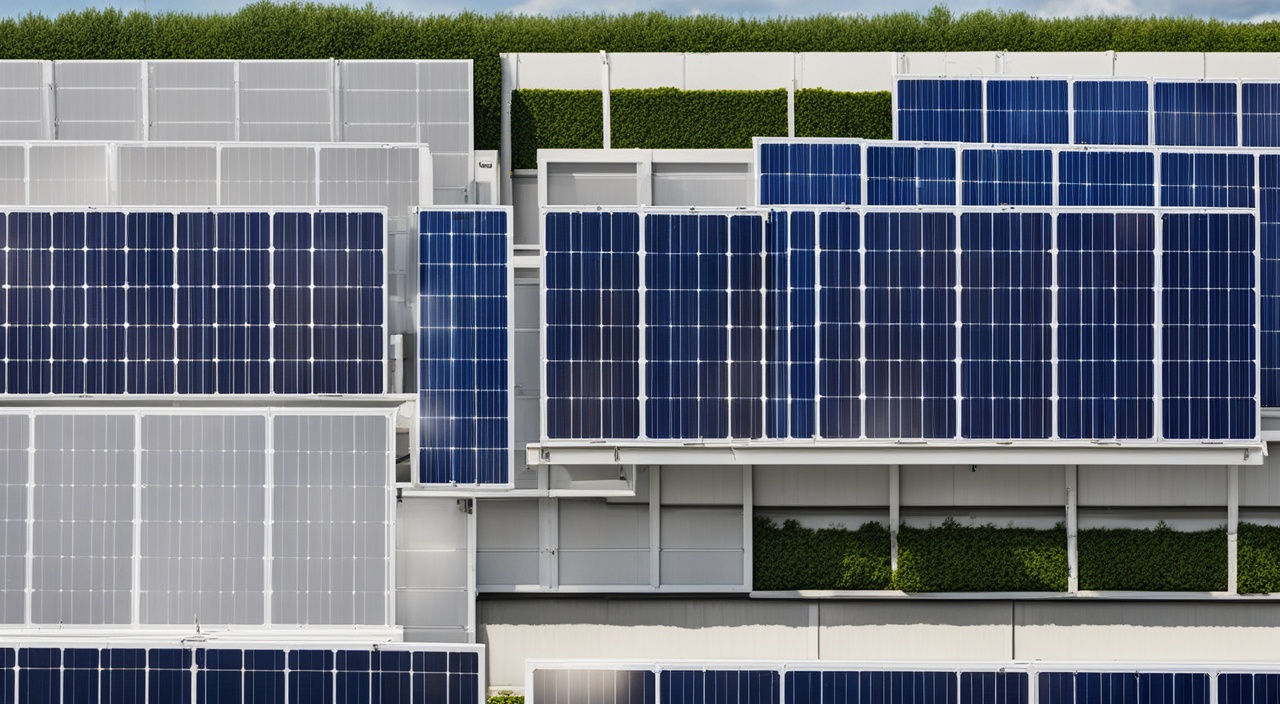Solar: Buying vs Leasing vs PPA Pros and Cons
Choosing the right solar energy option can seem tough, especially when picking a financing plan for your place or business. Should you buy solar panels, lease them, or go for a power purchase agreement (PPA)? Each choice has its pros and cons, depending on your financial situation, energy use, and future plans. We’ll look into the good and bad of each solar financing option to guide you in making a smart choice that fits your renewable energy dreams.
Key Takeaways
- Buying solar panels outright offers long-term ownership and control, but requires a higher upfront investment.
- Leasing solar panels can provide lower initial costs, but you don’t own the equipment, and may have less control over maintenance and upgrades.
- Solar power purchase agreements (PPAs) eliminate upfront costs, but you don’t own the solar panels and are locked into a long-term contract with the provider.
- Evaluating your energy needs, available incentives, and long-term cost savings is crucial when choosing between buying, leasing, or a PPA.
- Selecting the right solar installer and equipment is essential for maximizing the benefits of your chosen solar financing option.
Introduction to Solar Energy Solutions
The solar energy market in the United States is growing fast. More people, both homeowners and businesses, are using the sun’s power. They do this for many reasons, like saving money and caring for the environment.
Overview of Solar Adoption in the US
The solar adoption in US has jumped up a lot lately. The country now has over 100 gigawatts of solar power. This is thanks to cheaper equipment, good government policies, and more people knowing about the benefits of solar energy.
Motivations for Going Solar
- Cost Savings: A big reason to switch to solar is saving money on electricity bills. Solar panels make clean energy that can cut down a lot on energy costs.
- Environmental Benefits: Solar energy is a green choice compared to using fossil fuels. It helps reduce carbon emissions and fights climate change.
- Energy Independence: Solar energy lets people make their own power. This means less need for the grid and more control over energy use. It’s great for areas often hit by power outages.
- Increased Property Value: Homes with solar panels are often worth more than those without them. This makes solar a smart investment for homeowners.
The solar adoption in US keeps growing. The benefits of solar energy are clear to more people every day. Knowing why others are choosing solar can help you decide if it’s right for you too.

Buying Solar Panels: Advantages and Disadvantages
Buying solar panels is a popular choice for homeowners wanting to go solar. This method has its benefits and drawbacks. Let’s look at the pros and cons of buying solar panels.
Advantages of Buying Solar Panels
- Long-term cost savings: Owning the solar system means you save on electricity bills over time. You avoid monthly lease or PPA fees.
- Increased home value: Homes with solar panels often sell for more. This makes your investment more valuable later on.
- Tax credits and incentives: Buying solar panels might get you federal tax credits and other incentives. This lowers the upfront costs.
- Complete control: As the owner, you manage the system’s maintenance, upgrades, and changes.
Disadvantages of Buying Solar Panels
- Higher upfront costs: Buying solar panels requires a big initial investment. This is more than leasing or PPA.
- Responsibility for maintenance and repairs: You’re in charge of keeping the system running smoothly. This includes fixing any issues that come up.
- Potential technology obsolescence: Solar technology changes fast. Your system might not work as well in the future, lowering its efficiency.
| Pros of Buying Solar Panels | Cons of Buying Solar Panels |
|---|---|
| Long-term cost savings | Higher upfront costs |
| Increased home value | Responsibility for maintenance and repairs |
| Tax credits and incentives | Potential technology obsolescence |
| Complete control |
Choosing to buy solar panels or other financing options depends on your finances, goals, and how much you want to control your solar system. Think about the pros and cons to find the best option for your home and energy needs.

Leasing Solar Panels: Exploring the Pros and Cons
Leasing solar panels lets homeowners enjoy solar energy without the high upfront cost. It’s a way to use solar power without buying the system. Knowing the good and bad points of leasing solar helps you decide if it fits your energy and money goals.
Understanding Solar Leasing Agreements
A third-party company owns and maintains the solar panels under a lease. You pay a monthly fee to use the system and the electricity it makes. At lease end, you can buy the system, extend the lease, or stop using it.
Leasing solar panels has many benefits:
- No or low upfront costs for installation
- Can save money on your electricity bills right away
- The company takes care of maintenance and repairs
- You can upgrade or remove the system when the lease ends
But, there are also downsides:
- You’ll pay a monthly fee for the lease’s length
- It might cost more over time than owning the system
- You might not be able to change or customize the system
- Selling your home with a leased solar system could be tricky
Knowing the pros and cons of leasing solar and the details of solar leasing agreements helps decide if it’s right for your solar panel leasing or third-party solar ownership needs.
“Leasing solar panels can be a great option for homeowners who want to go solar without the upfront cost, but it’s important to carefully review the terms of the agreement to ensure it aligns with your long-term energy and financial goals.”
Solar Power Purchase Agreements (PPAs): An Alternative Option
Homeowners and businesses are looking into solar energy, and a new option is gaining traction – solar power purchase agreements (PPAs). These agreements are a third way to go solar, different from buying or leasing panels. We’ll look into how PPAs work for homes and businesses, and the good and bad sides of this choice.
How PPAs Work for Residential and Commercial Solar
With a solar PPA, a company puts up the solar panels on your property. You agree to buy the solar energy at a set price, usually lower than what you pay now. This way, you get solar power without the big upfront costs.
PPAs are structured so you only pay for the energy you use. The company takes care of the panels, maintenance, and owning them. This is great for those who want solar power but don’t have the money or want to own the equipment.
- For homes, solar PPAs let people get renewable energy without a big upfront cost.
- For businesses, PPAs are a cost-effective way to power up with solar energy, often with no upfront costs.
PPAs are becoming more popular because they offer flexibility and savings compared to buying or leasing solar panels.
“Solar power purchase agreements (PPAs) have become an increasingly attractive option for both homeowners and businesses looking to harness the benefits of solar energy without the upfront costs.”
Pros and Cons of Buying Solar vs. Leasing Solar vs. PPA agreements
When looking into solar power, you have three main ways to go: buy, lease, or sign a PPA. Each method has its pros and cons. It’s key to think about what works best for your energy needs and wallet.
Buying Solar Panels
Buying solar panels means you own them for a long time. This way, you get to enjoy all the savings from your investment. But, it does require a big upfront cost, which might be hard for some.
Leasing Solar Panels
Leasing solar panels means you don’t pay a lot upfront. You start saving on your electricity bills right away. But, you don’t own the panels, and the savings might not be as high as buying them.
Solar Power Purchase Agreements (PPAs)
A PPA lets you skip the upfront costs. A third party installs and looks after the system for you. Then, you buy the solar power at a set rate, usually lower than what you pay now. This is great for those who want solar power without the big upfront cost.
Choosing the right solar option means looking at upfront costs, long-term savings, who owns the system, who does the upkeep, and what incentives you can get. By weighing these factors, you can pick the best option for your energy goals and budget.
| Factors to Consider | Buying Solar Panels | Leasing Solar Panels | Solar PPA |
|---|---|---|---|
| Upfront Costs | High | Low | None |
| Long-Term Savings | High | Moderate | Moderate |
| System Ownership | You own the system | Third-party owns the system | Third-party owns the system |
| Maintenance Responsibility | You are responsible | Third-party is responsible | Third-party is responsible |
Knowing the good and bad of each solar option helps you make a choice that fits your energy goals and budget.
“The choice between buying, leasing, or entering a PPA for solar panels ultimately comes down to your financial situation and long-term goals. There is no one-size-fits-all solution, so it’s essential to carefully evaluate your options.”
Evaluating the Long-Term Cost of Solar Ownership
Choosing to go solar means looking at both the upfront costs and the savings over time. There are many factors that can change the cost of owning solar panels. Knowing these can help you make a smart choice and get the most from your solar investment.
Factoring in Incentives and Tax Credits
When thinking about the long-term costs of solar, don’t forget about incentives and tax credits. These can really cut down the cost of solar panels. Here are some common ones:
- Federal Solar Investment Tax Credit (ITC): Homeowners can claim a tax credit for 26% of the total cost of their solar energy system.
- State and local rebates and incentives: Many states and cities offer extra money to encourage people to use solar power.
- Net metering programs: These let solar panel owners sell extra energy back to the grid, lowering their bills.
Using these incentives and tax credits can make the long-term costs of solar much lower. This makes solar power a better choice for many people.
| Incentive | Description | Potential Savings |
|---|---|---|
| Federal Solar Investment Tax Credit (ITC) | Homeowners can claim a tax credit for 26% of the total cost of their solar energy system. | Up to $7,500 for a $30,000 solar installation |
| State and Local Rebates | Many states and cities offer extra money to encourage solar use. | Varies by location, but can range from $0.50 to $1.50 per watt of solar capacity installed |
| Net Metering | Allows solar owners to sell extra energy back to the grid, lowering their bills. | Can offset a big part of a homeowner’s electricity bill, based on usage and solar production |
Looking at the solar panel incentives and tax credits helps you figure out the long-term costs of solar. This way, you can choose the best solar financing option for your needs.
Assessing Your Energy Needs and Usage Patterns
Before picking a solar financing plan, it’s key to look at your energy use now and what you might need later. This helps figure out the right size for your solar panel system. It’s a big part of choosing the best solar financing option.
Start by checking your energy use by looking at your past bills. This shows your usual energy use and any changes over time. Knowing this helps you pick the right size for your solar panels.
- Determine your average monthly energy consumption (in kilowatt-hours, or kWh).
- Identify any significant changes in your energy usage throughout the year, such as seasonal variations.
- Estimate your future energy needs, taking into account any planned expansions or changes in your home or business operations.
With a clear picture of your energy use, you can work with a solar installer. They can help you determine the solar panel size you need. This ensures you match the solar system to your energy requirements and evaluate home/business energy usage well. It makes sure the solar solution fits your specific needs.
“Accurately assessing your energy needs is the foundation for selecting the optimal solar panel system and financing option.”
By carefully evaluating your energy usage patterns, you’re ready to pick the best solar financing plan. This step is key to making sure your solar investment saves you money and meets your energy needs.
Comparing Solar Financing Options
Starting your solar energy journey means looking at financing options. You have three main choices: solar loans, solar leases, and solar power purchase agreements (PPAs). Each has its pros and cons. The best one for you depends on your needs and what you like.
Solar Loans: Owning Your Solar System
With a solar loan, you finance your solar panels and own the system. This can lead to big savings over time because you get federal and state tax credits and incentives. Plus, you can sell your home and keep the solar system’s value.
But, solar loans need a big upfront payment. This is more than leases or PPAs.
Solar Leases: Hassle-Free Solar
Solar leases are easy, as a company owns and maintains the system. You just pay a monthly fee for the electricity it makes. This is great if you don’t have much money upfront. But, you miss out on tax credits and may be in a long contract with the company.
Solar Power Purchase Agreements (PPAs): Pay-as-You-Go Solar
PPAs let a solar company put up and run the system on your property. You buy the electricity it makes at a set rate. This can give you lower electricity costs than your local provider. You don’t pay upfront or worry about maintenance.
But, you don’t own the panels, and selling your home might be hard.
When picking a solar financing option, think about your energy needs, money situation, and what you prefer. Look at the good and bad of each choice to make a choice that fits your solar goals.
Selecting the Right Solar Installer and Equipment
Choosing the right solar installer and equipment is key to a system’s success. We’ll help you find the best solar companies and check the quality of solar panels and other parts. This ensures your solar setup works well and lasts a long time.
Finding a good solar installer is crucial for your system’s performance and happiness. Look into local and national solar companies. Check their credentials, read reviews, and see their experience. This way, you’ll find a reliable installer who offers great work and service.
When picking solar equipment, look at the brands and quality of solar panels, inverters, and more. Think about how efficient, durable, and well-covered they are by warranties. Choosing top-notch equipment from trusted makers means your system will work great for many years.

